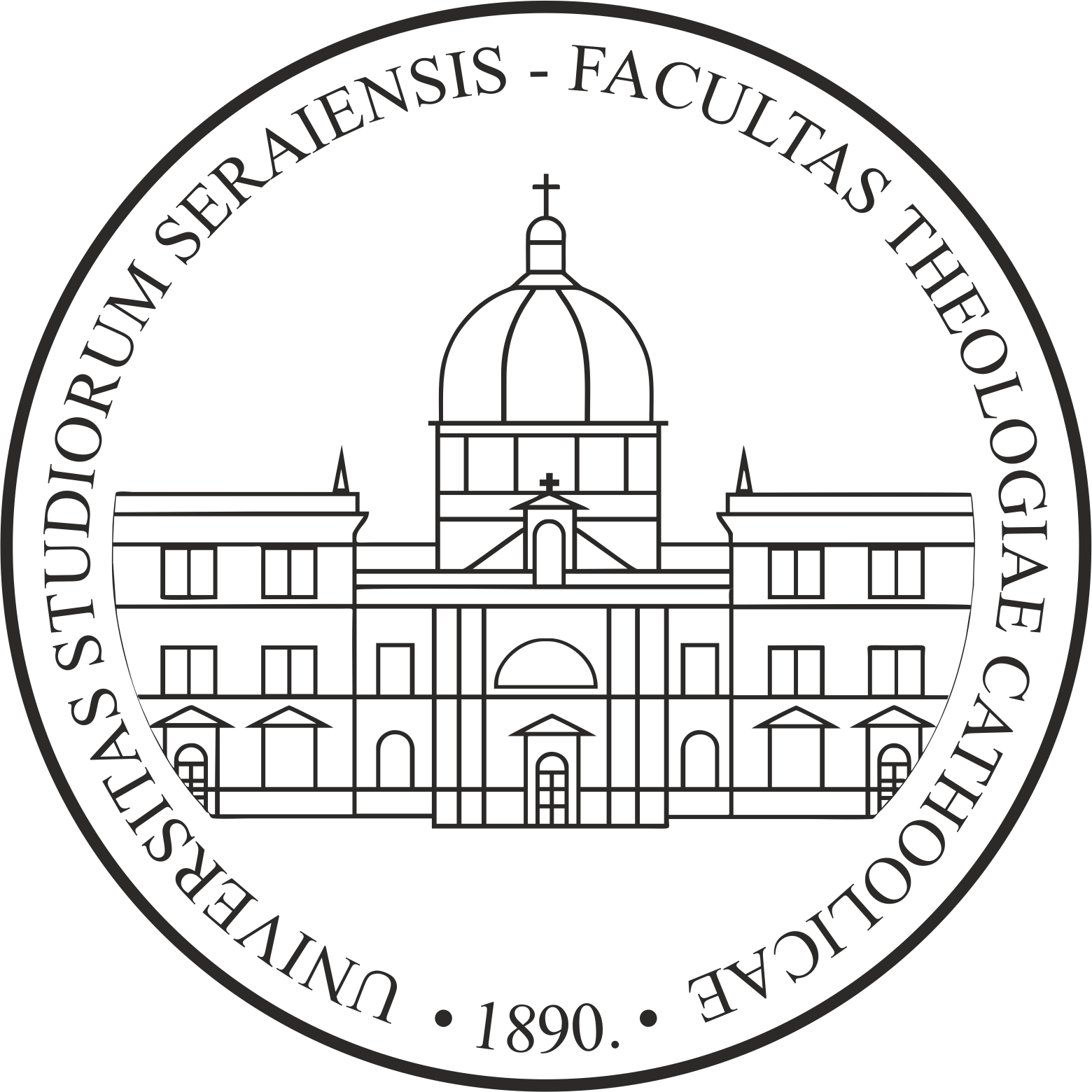New Issue of Vrhbosnensia Published vol. 28, 2 (2024)
A new issue of Vrhbosnensia, the scientific journal of the Catholic Theological Faculty of the University of Sarajevo, has been published. It is the second issue for the year 2024.
Stanislav Šota and Igor Jakobfi (CTF Đakovo) are the authors of the article "Fiancés in smaller towns and villages of the Archdiocese of Đakovo-Osijek about themselves, the most important values in engagement and marriage." The paper presents the results of a study conducted on a sample of 391 engaged persons (192 fiancés and 199 fiancées) from rural parishes and parishes in smaller towns of the Archdiocese of Đakovo-Osijek, who attended a marriage preparation course as part of their proximate preparation for contracting matrimony. The aim of the research was to gain insight into their practice of faith, age, understanding of engagement, and to clarify their perception of values for a successful marriage.
Mirjana Pinezić (CTF Split) is the author of the article titled "Human Freedom and Responsibility Towards Self, Others, God, and the Created World in the Writings of Edith Stein." In this article, the author discusses the understanding of freedom according to Edith Stein, relying on Husserl's phenomenological method. Freedom is first presented as an inner reality connected with human consciousness, spirit, and will, and then extends to the entirety of human reality, including the social dimension. True freedom is realized in the depths of the spiritual soul through the reception of grace, which transforms and empowers the person for a new level of responsibility. The Church is thereby viewed as a community that provides external paths of grace, while through prayer and mutual surrender, a co-responsibility for the salvation of others and the entire created world is built. Christian life, according to Edith Stein, is based on the cooperation between nature, freedom, and grace.
Dalibor Milas (University of Graz - Catholic Theological Faculty) in the article "Peacebuilding and Coexistence through Education: The Example of the Catholic School Center in Sarajevo" briefly explores the role of Catholic School Centers (KŠC) in Bosnia and Herzegovina as a model of education that promotes social cohesion and coexistence in a country divided by ethnic, religious, and political differences. The focus of the paper is on the example of the KŠC "St. Joseph" in Sarajevo. By analyzing the historical development of the KŠC, its role in the educational system, and its impact on a multicultural society, the paper indicates how education transcends classic academic goals and becomes a key actor in building lasting peace. Methodologically, the paper uses thematic analysis of scholarly interviews with former students and staff of the KŠC, exploring their personal stories and experiences. The results show that the KŠC is not only an educational institution but also a bridge connecting different ethnic and religious communities, promoting critical thinking, tolerance, and mutual understanding.
Marius De Byl (Faculty of Catholic Theology - Ruhr-University Bochum) and Marko Grčević (CTF Zagreb) are the authors of the article in English titled "Theology: still needed in Schools? Religious Education in Croatia and Germany." This article provides an overview of the conditions that shape religious education in Germany and Croatia. Special emphasis is placed on the sustainability of the subject, which is currently under scrutiny due to numerous questions about its own identity. The goal is to open perspectives that consider the transnational expansion of religious education. Theology, as the reference discipline for religious education, is critically re-examined in its role, but also re-emphasized as a practice of reflection, and is newly positioned within religious education. The aim is to promote a future-oriented and dialogue-based religious education.
In the article "Biblical Psalms in the Islamic Perspective – A Source of Inspiration and Connection," Monika Bajić (Biblical Institute Zagreb) explores the relationship between the Qur'an and the biblical psalms, with an emphasis on the Qur'anic verses (ayat) that mention al-Zabūr and Dawūd (David). In studying the relevant Qur'anic verses, both historical and contemporary research are considered. Furthermore, a concise textual analysis is conducted with a special focus on the direct quotation from the Psalter in the Qur'anic Surah 21 (The Prophets). The paper aims to highlight the parallels between both sacred texts and their theological implications, to show the influence of the biblical psalms on the revelation of the Qur'an, as well as their contribution to the shaping of Islamic theology and piety.
Ivica Jurić and Luka Jelavić (CTF Split) are the authors of the article "Digital Evangelization in the Example of Projects by the Croatian Salesian Province." The authors write about the challenges and opportunities that the rapid development of digital media brings to the mission of the Church in contemporary society. Starting from the historical ability of the Church to successfully cross cultural thresholds, the authors emphasize the importance of understanding contemporary digital culture and being open to its possibilities and dangers. Through a review of church documents and an analysis of specific media projects by the Croatian Salesian Province ("Nova Eva," "Ja slijedim svoga Kralja," and "Lectio divina s Don Boscom"), they point to ways the Church can use digital tools for the proclamation of the Gospel. The article also provides useful insights that can serve to improve existing initiatives and to shape new forms of media evangelization.
In addition to the six scientific articles, the new issue also features an interesting review by Professor Emeritus Dr. Mate Zovkić on the supernatural character of the Medjugorje apparitions, and three book reviews.
The papers from the new issue of the journal are available on Hrčak – the portal of scientific journals of the Republic of Croatia.
Mario Jurišić




